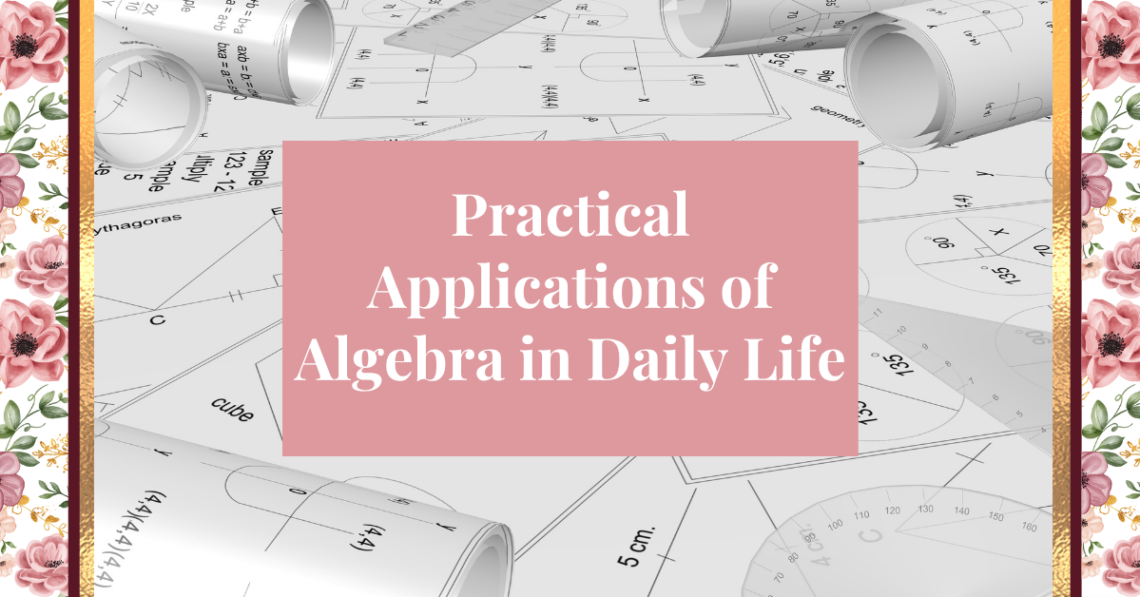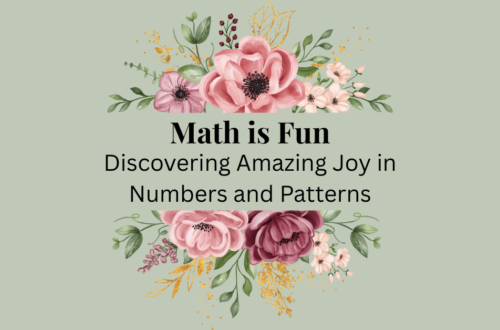Algebra might seem like a set of abstract rules and formulas you learn in school, but the truth is that algebra is everywhere! From budgeting your finances to planning a road trip, the concepts you learn in algebra are useful in many everyday situations. In this post, we’ll explore some practical ways algebra is used in daily life, helping you understand how these mathematical principles apply to the real world.
1. Budgeting and Personal Finance
One of the most common applications of algebra is in managing your finances. Whether you’re calculating how much to save, how much interest you’ll pay on a loan, or figuring out your monthly expenses, algebraic equations help you make sense of your money.
- Calculating Expenses: Suppose you have a monthly budget and want to figure out how much money you can spend on discretionary items after paying bills. If your total income is represented by xxx, and your expenses (such as rent, utilities, and insurance) are known, you can set up an algebraic equation to solve for the amount you have left to spend.
- Loan Interest: Algebra is also used to calculate the interest on loans. For example, if you’re taking out a car loan or mortgage, you can use algebraic formulas to determine the total interest you’ll pay over the term of the loan and how much your monthly payments will be.
2. Cooking and Recipe Adjustments
When you’re following a recipe, algebra can help you adjust the quantities based on the number of servings you want to make. Algebra allows you to scale recipes up or down while maintaining the correct proportions.
- Scaling Ingredients: If a recipe is designed to serve 4 people but you need it to serve 6, you can set up an algebraic equation to calculate how much of each ingredient you need. For example, if the recipe calls for 2 cups of flour for 4 servings, you can find the amount of flour needed for 6 servings by setting up a ratio equation: \( \frac{2}{4} = \frac{x}{6} \)
- Solving for x gives you the new amount of flour required.
3. Travel and Distance Calculations
Planning a road trip or a daily commute involves a lot of calculations where algebra can come in handy. Whether it’s determining travel time, fuel costs, or planning a route, algebra is a great tool for finding the answers.
- Travel Time: If you know your average speed and the distance you need to travel, you can use algebra to figure out how long the trip will take. The formula for time is: \( \text{Time} = \frac{\text{Distance}}{\text{Speed}} \) For example, if you’re traveling 300 miles at an average speed of 60 miles per hour, you can calculate that the trip will take 5 hours.
- Fuel Consumption: Algebra can also be used to calculate how much fuel you’ll need for a trip. If you know the miles per gallon (MPG) of your car and the total distance, you can use an equation to determine how much gas you’ll need. For example: \( \text{Fuel Needed} = \frac{\text{Distance}}{\text{MPG}}\)
4. Home Improvement Projects
When tackling home improvement projects, algebra can help you calculate materials, costs, and time. Whether you’re painting a room, tiling a floor, or building furniture, algebra helps you plan efficiently.
- Area and Perimeter: If you want to paint a wall, you need to calculate the area of the wall to determine how much paint is required. The formula for area is: \( \text{Area} = \text{Length} \times \text{Height}\) If you know the dimensions of your room, you can use this formula to find out how much paint you’ll need.
- Material Quantities: Similarly, when tiling a floor, you can use algebra to determine how many tiles you need. For example, if each tile covers 1 square foot, and your floor is 10 feet by 12 feet, you can calculate that you’ll need 120 tiles for the floor.
5. Shopping and Discounts
Algebra is also essential when shopping, especially when you want to calculate discounts, sales tax, or compare prices between different stores.
- Calculating Discounts: If an item is on sale for 25% off, you can use algebra to find out the sale price. For example, if the original price of a jacket is $80, you can calculate the discount by using the equation: \(\text{Discount} = 0.25 \times 80\) This gives you a discount of $20. Subtracting the discount from the original price will tell you how much the jacket costs after the sale.
- Comparing Prices: If you’re shopping for a product online and want to compare prices, algebra can help. For example, if you find a product costing $40 with $5 shipping at one store and $42 with free shipping at another store, you can set up an equation to compare the total cost and decide which one is the better deal.
6. Health and Fitness
Algebra can also be useful in tracking health and fitness goals, such as calculating calorie intake or monitoring weight loss.
- Calories Burned: Many fitness trackers use algebra to estimate how many calories you burn during exercise based on your weight, intensity, and duration of activity. You can use algebraic equations to track your calorie expenditure and create a balanced workout plan.
- Body Mass Index (BMI): Algebra is used to calculate your BMI, which is a measure of body fat based on height and weight. The formula for BMI is: \(\text{BMI} = \frac{\text{Weight in kg}}{\text{Height in meters}^2}\) Weight in kg By using this formula, you can determine if you fall within a healthy weight range.
Conclusion
As you can see, algebra is much more than a subject you learn in school — it’s a valuable tool used in many aspects of daily life. Whether you’re managing your finances, adjusting a recipe, planning a trip, or tracking your fitness, algebra helps you make informed decisions and solve problems efficiently. The next time you use math in your everyday activities, take a moment to appreciate how algebra enhances your ability to manage, plan, and improve your life.
How do you use algebra in your daily life? Share your experiences in the comments below!




